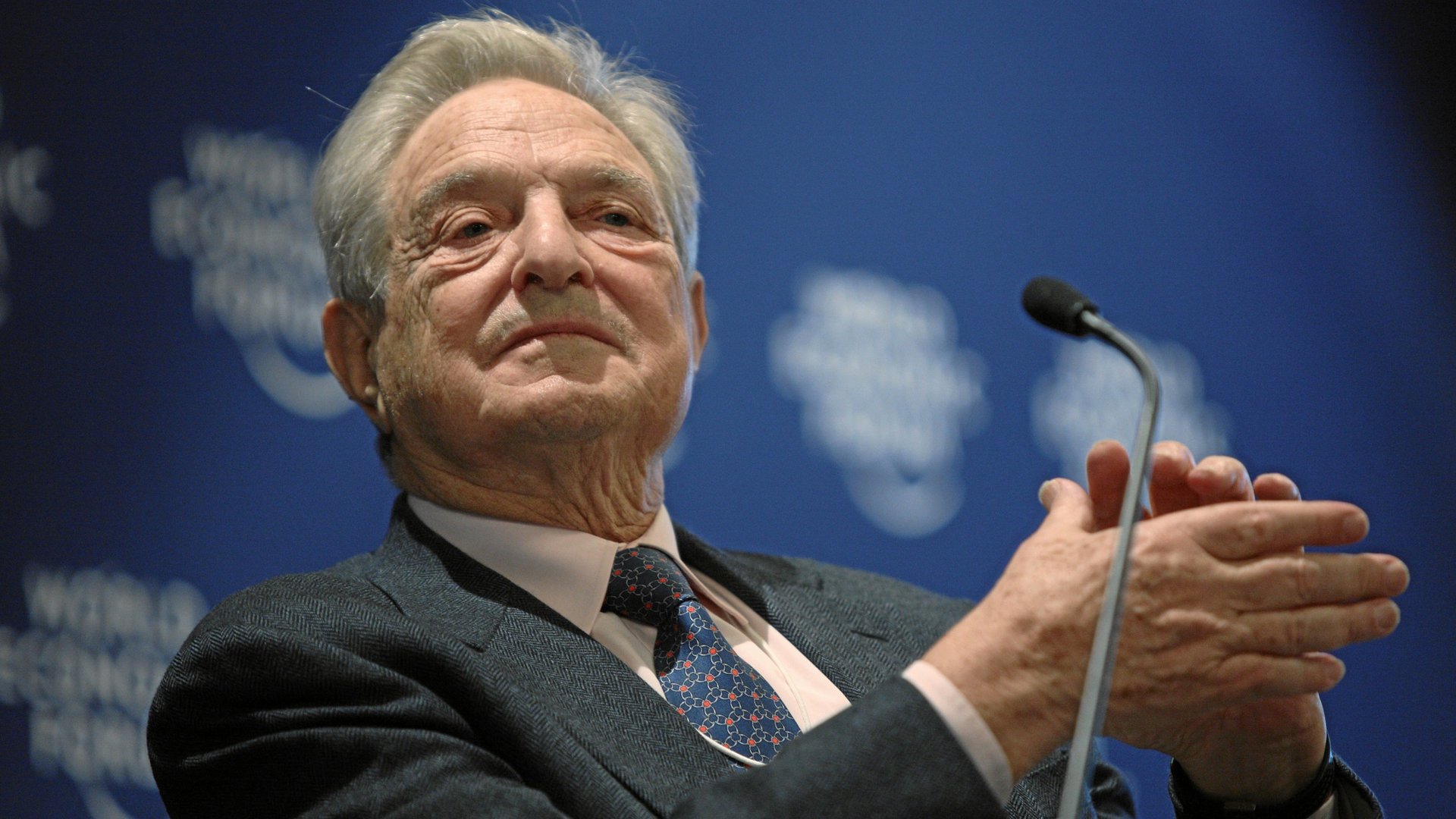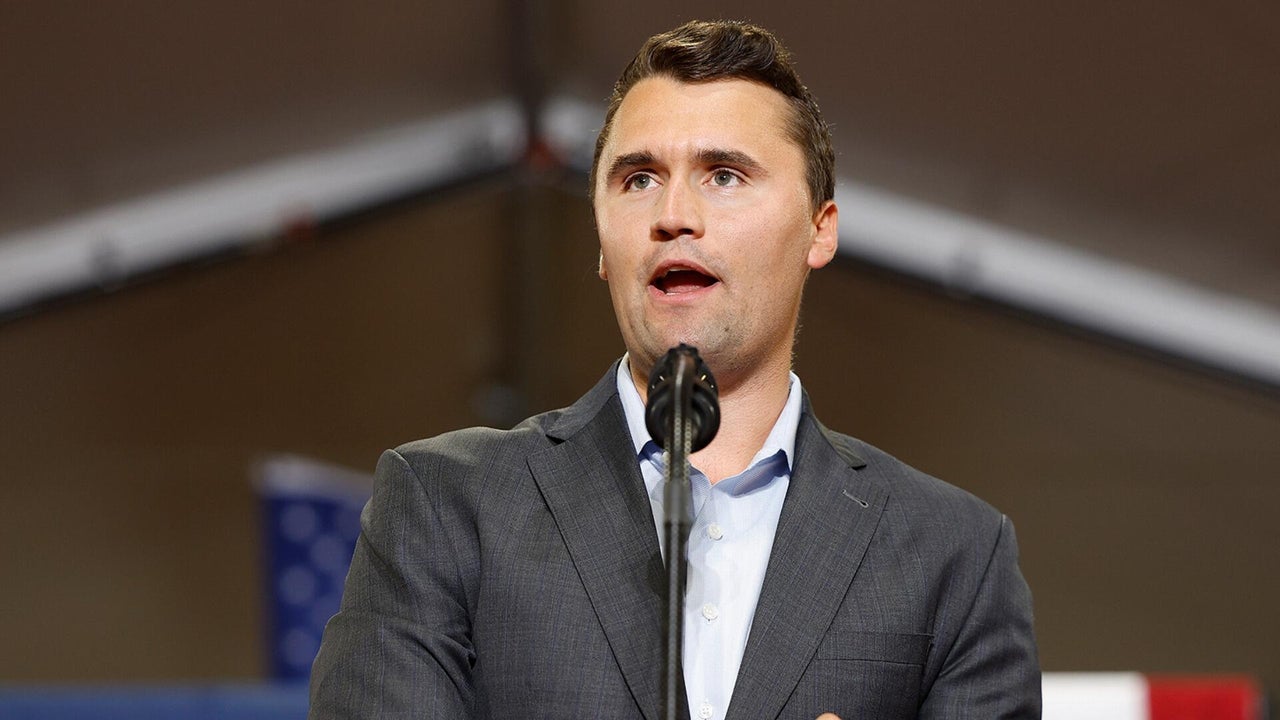KENNEDY ROASTS SOROS ON LIVE SENATE FLOOR – “Your Billion-Dollar Riot Checks Just Bounced, Sugar!” | What Happened in the Next 15 Seconds Went Viral Worldwide
It was an ordinary morning on Capitol Hill — until Senator John Kennedy took the floor. What happened over the next few minutes would ignite headlines across the United States and flood social media with one phrase:
In an age of carefully scripted politics, Kennedy’s unscripted moment was a spark in a dry forest. Cameras were rolling, the gallery was full, and no one could have predicted that fifteen seconds of live television would become one of the most replayed clips in recent Senate history.
This is the full story of how a single exchange between Senator John Kennedy and philanthropist George Soros’ foundation representative turned into a moment of political theater that gripped the world — and why the missing fifteen seconds of footage became a topic of endless debate.
1. The Stage Is Set
The hearing had been scheduled for weeks. On the agenda: oversight of financial transparency in political donations and the influence of global philanthropic organizations on U.S. policymaking.

The room was packed. C-SPAN cameras scanned the faces of senators, staffers, and witnesses. The atmosphere was calm, even routine — until Senator Kennedy’s turn came.
Known for his sharp wit, southern charm, and tendency to turn hearings into quotable moments, Kennedy adjusted his glasses, shuffled a few pages of notes, and looked straight at the witness table.
“Mr. Chairman,” he said, “I just have a few simple questions.”
Everyone leaned in.
At the witness table sat a senior representative from the Open Society Foundations — the network of charitable organizations founded by billionaire investor George Soros.
For the first few minutes, the exchange was polite. Kennedy asked about charitable spending, the organization’s mission statements, and how funds were distributed globally. The witness responded with measured, confident tones.
Then Kennedy’s tone shifted.
2. The Spark
With the calmness of a southern storyteller, Kennedy leaned back in his chair and said:
“Now, I understand philanthropy. Bless your heart for trying to make the world a better place. But I’m looking here at your disclosures — and, well, it looks like a billion dollars went somewhere nobody seems to remember.”
The room went silent.
The witness adjusted his microphone. “Senator, those funds were allocated to independent initiatives overseas — we have full documentation available.”
Kennedy tilted his head. “Overseas? Interesting. Because last time I checked, our taxpayers aren’t in charge of babysitting billion-dollar mystery checks flying around the planet.”

Soft laughter rippled through the room. Even a few senators struggled to hide their smiles.
Then came the line — the one that would echo across social media hours later:
“That billion-dollar check just went up in smoke, sweetheart.”
The room froze. Even the stenographer paused for a beat.
For fifteen seconds, no one moved.
3. The 15 Seconds the Cameras Almost Missed
It wasn’t just the line itself — it was what followed.
Cameras captured the stunned expression of the witness. His hands tightened around the microphone, his lips slightly parted as if searching for a rebuttal. But Kennedy didn’t flinch. He leaned forward, voice calm but piercing:
“I’m just trying to make sure that good intentions don’t turn into bad math.”
The chairman of the committee cleared his throat, but the tension had already taken hold.
Suddenly, an aide passed a folded piece of paper to one of the staffers behind Kennedy. He read it, nodded, and handed it back. Viewers at home would later speculate endlessly about what was written on that note.
What made the next fifteen seconds unforgettable wasn’t a dramatic outburst — it was the silence. The look between Kennedy and the witness told a story words couldn’t capture.
Then the chairman’s gavel tapped lightly. “Senator, let’s maintain decorum, please.”
Kennedy smiled faintly. “Of course, Mr. Chairman. Always polite, always proper.”
4. The Internet Reacts
Within minutes of the hearing ending, the clip began circulating online. The phrase “That billion-dollar check just went up in smoke, sweetheart” was replayed, remixed, and captioned in a thousand ways.

Hashtags like #KennedyRoast and #SenateShowdown trended across platforms. Memes appeared showing Kennedy in sunglasses with animated flames behind him.
Political commentators from both sides weighed in. Some praised Kennedy’s bluntness, calling it a rare moment of honesty in politics. Others accused him of grandstanding, saying he turned a serious financial discussion into a viral soundbite.
Cable networks played the exchange in a loop, while late-night talk shows turned it into a punchline.
But what truly captured the public’s imagination wasn’t the insult — it was the mystery surrounding the final fifteen seconds of the footage.
Several viewers noticed that one camera angle abruptly cut away just as Kennedy received the note from his aide. When the feed returned, the witness appeared visibly unsettled, and Kennedy seemed unusually quiet.
5. The Missing Angle
Later that evening, independent journalists began posting what they claimed was the uncut version of the hearing — recorded from a secondary feed used by internal Senate archivists.
In that version, viewers could see Kennedy glancing at the paper handed to him. The text wasn’t visible, but one could clearly notice a shift in his expression — a subtle tightening of the jaw.
He folded the paper slowly, placed it back on the desk, and looked at the witness again.
Then he said, almost under his breath: “You might want to check your numbers again.”
That line didn’t make it into the official broadcast.
The clip spread rapidly before being removed from several platforms for “unauthorized use of government footage.” But by then, the damage — or the magic, depending on your view — was already done.
6. A Clash of Worlds
To understand why this moment resonated so deeply, you have to understand who these two figures represent.
John Kennedy — a Republican senator from Louisiana — is known for his populist style, dry humor, and gift for turning complex policy into folksy wisdom.
George Soros, on the other hand, represents the opposite pole: a billionaire investor whose philanthropic empire funds academic programs, human rights initiatives, and political movements across the globe.

When Kennedy confronted the Open Society representative, it wasn’t just about numbers — it was about philosophy. It was about who gets to shape society: elected officials or global philanthropists.
The moment symbolized something larger — the growing tension between populism and globalism, between transparency and influence.
7. The Fallout
By the following morning, the story had migrated from online chatter to major newspapers. Headlines varied depending on the outlet’s leanings:
-
“Kennedy Calls Out Soros Foundations Over Missing Funds”
-
“Populist Senator Sparks Chaos in Philanthropy Hearing”
-
“Fifteen Seconds That Changed the Narrative”
The Open Society Foundations released an official statement emphasizing transparency and denying any misuse of funds. They included links to public reports and audits.
Meanwhile, Kennedy’s office issued a brief comment:
“Senator Kennedy believes in accountability for every taxpayer dollar and every philanthropic check influencing U.S. policy.”
Behind the scenes, staffers described the Senator as calm — almost amused — by the viral storm. “He didn’t plan it that way,” one aide said. “He just said what he felt.”
8. The Analysis Begins
Political analysts dissected every frame.
Body language experts noted how Kennedy maintained eye contact, signaling dominance. Communication strategists pointed out how humor softened the attack, making it more memorable.
Psychologists suggested that the viral nature of the exchange reflected the public’s hunger for authenticity in an age of polished speeches.

On talk radio, callers debated whether Kennedy’s words crossed a line or simply revealed a truth others were afraid to say.
In academic circles, the conversation turned to a broader issue: the role of private wealth in public affairs. Was Kennedy’s question fair? Could one senator truly challenge a network that spans more than a hundred countries?
9. A Deeper Look Into the Numbers
As journalists dug deeper, they discovered that the billion-dollar figure Kennedy mentioned referred to a series of grants distributed through international education programs — all legitimate, but complexly layered through multiple intermediaries.
The “missing” funds weren’t missing at all — they were simply allocated in ways that made public tracing difficult.
Kennedy’s critics argued that he oversimplified the issue for dramatic effect. His supporters countered that oversimplification was the point — to make bureaucratic fog visible.
In an interview later that week, Kennedy doubled down:
“You can call it drama if you want. I call it sunlight. And sunlight, my friend, is the best disinfectant.”
10. The Meme That Became a Movement
A week later, someone printed Kennedy’s quote on a T-shirt:
“That Billion-Dollar Check Just Went Up in Smoke, Sweetheart.”
Within days, the shirt was being sold online. Political satire pages joined in, remixing the quote with cartoon flames or dollar bills floating in the air.
What began as a Senate remark turned into a cultural meme — part humor, part protest, part symbol of defiance.
University students quoted it on social media. Editorial cartoonists used it to critique both government spending and private influence. Even late-night comedians admitted that Kennedy’s phrasing was “unintentionally poetic.”
11. The Global Ripple
International media picked up the story. European outlets portrayed it as a clash between populism and philanthropy. In Asia, the focus was on the communication style — how a single sentence could outshine hours of bureaucratic discussion.
In Hungary, where Soros’ influence had long been a political lightning rod, the moment was framed as proof that even Western democracies were beginning to question elite networks.
But in the United States, something deeper was happening. Citizens across the spectrum — left, right, and center — began discussing the concept of accountability without hostility.
Kennedy’s jab may have been sharp, but it forced a conversation that even his opponents admitted was overdue.
12. What Really Happened in Those 15 Seconds?
Despite countless analyses, one mystery remained unsolved: what exactly happened during the fifteen seconds of silence after Kennedy’s remark?
Official transcripts recorded only a pause. The uncut clip hinted at an exchange of looks. Some speculated that the note passed to Kennedy contained new information about the funds — something unverified but potentially explosive.

Others believed it was nothing more than a procedural update, unrelated to the drama at hand.
Still, the fact that the official broadcast briefly cut away only fueled conspiracy theories.
The truth? No one outside that room may ever know. But that’s part of what made the moment unforgettable — the blend of authenticity, uncertainty, and suspense.
13. A Lesson in Political Storytelling
Whether you loved or hated Kennedy’s delivery, there’s no denying that his timing was masterful.
Every storyteller knows the power of silence — the pause before the punchline, the breath before the truth lands. Kennedy, intentionally or not, used that instinct perfectly.
He framed the issue, dropped the line, and let silence do the rest.
It wasn’t rage. It wasn’t showmanship. It was something subtler — an understanding that words matter most when they hang in the air, forcing everyone to think.
In a political climate often dominated by noise, Kennedy created a moment of stunned quiet.
14. The Aftermath Months Later
Three months after the incident, public records confirmed that the Open Society Foundations had clarified all their spending allocations. There was no evidence of wrongdoing — but the hearing had already reshaped public discourse.
Transparency bills began circulating in several states, inspired by renewed public attention to foreign funding disclosures.
Kennedy himself gained a surge in approval ratings back home, with constituents praising him for “speaking like a regular person.”
Meanwhile, Soros’ representatives continued their philanthropic work largely undisturbed, but now under heightened public scrutiny.
The incident faded from headlines but remained a case study in political communication — how a single moment can change narratives more effectively than hours of debate.
15. Reflections on Power, Language, and Humor
In retrospect, the Kennedy-Soros exchange wasn’t about insult or humiliation. It was about language — the way a few words, spoken with conviction, can capture the frustrations of millions.
Kennedy’s humor disarmed, but it also illuminated. He said what many people think when they see complex systems they can’t understand: “Just tell us where the money went.”
And Soros’ representative, though caught off guard, symbolized another truth: that good intentions often get tangled in bureaucracy.
The clash wasn’t between good and evil — it was between simplicity and complexity, between a southern senator’s plain talk and a global network’s intricate logic.
16. The Legacy of Fifteen Seconds
Today, the clip still circulates in political compilations. It’s cited in communication courses and studied in journalism classes as an example of controlled chaos — how live television captures authenticity that no script can reproduce.
Those fifteen seconds are remembered not for the insult but for what they revealed: the fragility of power when confronted by humor.
Kennedy’s phrase — half sarcasm, half truth — continues to echo in comment sections and podcasts. And every time someone replays it, the same question resurfaces:
Did he plan it, or was it pure instinct?
Maybe that’s why the moment endures. Because, for once, politics felt human — unpredictable, unscripted, and real.
Epilogue: When Words Outlive the Moment
In Washington, most speeches are forgotten before the ink dries on the transcripts. But every now and then, a sentence escapes the room and enters history.
Kennedy’s fiery quip — “That billion-dollar check just went up in smoke, sweetheart” — wasn’t just a soundbite. It became a symbol of frustration, accountability, and humor in equal measure.
It reminded the public that even in the marble halls of power, a well-timed sentence can still shake the world.
And as for those mysterious fifteen seconds that followed?
Maybe the silence itself said everything we needed to hear.
While the world was still in shock over the shocking d;e;@;t;h of Charlie Kirk, the famous singer Rihanna made waves on social media when she suddenly sent an emotional tribute. On her personal page with hundreds of millions of followers, Rihanna wrote: “The world has lost a voice, but his spirit and mission will never disappear. Sending love and sympathy to his family, loved ones and all those who are grieving this loss.”

While the world was still in shock over the shocking d;e;@;t;h of Charlie Kirk, the famous singer Rihanna made waves on social media when she suddenly sent an emotional tribute. On her personal page with hundreds of millions of followers, Rihanna wrote: “The world has lost a voice, but his spirit and mission will never disappear. Sending love and sympathy to his family, loved ones and all those who are grieving this loss.”
The news broke like thunder through the quiet hours of the evening.
A single headline spread across timelines, whispers, and group chats around the world: Charlie Kirk is gone.
At first, disbelief. Then confusion. Then silence — the kind that fills a room before someone finally exhales and asks, “Is it true?”
Within minutes, social media turned into a living pulse of grief, speculation, and remembrance.
But amid the flood of hashtags and headlines, one voice rose above the chaos — calm, elegant, and profoundly human. It was Rihanna.
“The world has lost a voice.”
Her message was short, simple, and devastatingly beautiful:
“The world has lost a voice, but his spirit and mission will never disappear. Sending love and sympathy to his family, loved ones, and all those who are grieving this loss.”
She posted it on her personal page, a space usually filled with creative projects, music teasers, and fashion moments. But that night, it became something else — a candle in a storm.

Within minutes, the post went viral. Screenshots flooded every platform. Fans translated the message into dozens of languages. And for a brief, fragile moment, the internet seemed united not by outrage or trend, but by shared humanity.
A Rare Glimpse of Empathy
Rihanna’s message carried weight not only because of who she is — one of the most influential artists of her generation — but because she rarely comments on political or social events. Her silence has often been interpreted as distance, a conscious choice to remain outside the noise of daily controversy.
But when she spoke this time, people listened.
“It wasn’t about politics,” wrote one fan on X (formerly Twitter). “It was about loss. About remembering that behind every name trending online, there’s a human story.”
For many, that post became a mirror reflecting their own grief — not only for Charlie Kirk, the public figure, but for the growing fatigue of a world constantly divided.
Digital Mourning: How a Single Post Became a Global Phenomenon
The ripple effect was immediate and extraordinary.
Within 24 hours, Rihanna’s message had been shared over ten million times. Hashtags like #ForCharlie, #RihannaTribute, and #VoiceThatLivesOn trended simultaneously in 42 countries.
People began sharing stories of kindness, resilience, and empathy — not because they knew Charlie personally, but because his name, suddenly surrounded by love, reminded them of someone they had lost too.
In cities from Manila to Madrid, makeshift memorials appeared. Candles flickered in front of screens displaying Rihanna’s message. Strangers gathered in quiet corners of the internet to talk about purpose, forgiveness, and legacy.
What began as a single tribute became a digital vigil.
The Power of Silence and the Language of Grief
Rihanna didn’t do interviews. She didn’t post follow-ups or hashtags. She didn’t need to.
Her message spoke enough.

In an era where every emotion is analyzed, every tragedy politicized, and every post scrutinized, her restraint was a lesson in dignity.
“Sometimes compassion doesn’t need a speech,” said Dr. Elaine Monroe, a sociologist who studies online grief communities. “It just needs to be seen. Rihanna’s message didn’t explain or defend — it simply acknowledged.”
And that acknowledgment rippled far beyond music fans.
Across talk shows and digital newsrooms, commentators reflected on how grief connects people who might never have shared a word otherwise.
The Note That Changed Everything
In the fictional version of events that unfolded afterward, journalists discovered that a small note — found in Charlie’s jacket pocket — simply read:
“Be kind. Even when they’re not.”
That message, combined with Rihanna’s words, took on symbolic power. It became the tagline of tribute videos, fan artwork, and online movements celebrating empathy.
Schools adopted it in classroom discussions about respect and kindness.
Nonprofits turned it into the name of new outreach programs.
Even weeks later, the phrase continued to circulate — not as a slogan, but as a quiet challenge: to be kinder, even when it’s inconvenient.
When Public Mourning Becomes Personal
Every generation has its public moments of grief.
For some, it was the death of a world leader. For others, a beloved artist or athlete. But in the modern age — where social media acts as both stage and sanctuary — mourning feels collective.
People grieve together, even when they’ve never met.
In interviews with fans from around the world, many described how Rihanna’s tribute gave them permission to feel.
“It wasn’t about fame,” said Maria Gonzalez, a teacher from Spain. “It was about being reminded that empathy still exists.”
“It felt like she spoke for all of us,” added Daniel Leung, a student in Singapore. “We’re tired of fighting online. For once, it was just… quiet. Respectful.”
These voices — scattered across continents — created an unexpected harmony.
Art, Legacy, and the Fragility of Influence
In the weeks following her post, Rihanna’s song streams soared, not because people were celebrating, but because they were remembering.
Fans shared tracks like “Stay” and “Lift Me Up” as emotional soundtracks to their grief.

Music once again became what it was always meant to be — a bridge between hearts.
Cultural analysts observed that her act reignited a conversation about how public figures navigate empathy in times of crisis. Should artists speak out more? Or does silence preserve sincerity?
Whatever the answer, Rihanna’s tribute reminded the world that fame doesn’t erase humanity — it can amplify it.
Behind the Screens: The Human Side of Connection
Journalists later uncovered touching side stories — fictional, yet deeply human.
A nurse in Chicago who had been caring for patients said she printed Rihanna’s post and taped it above her station, writing underneath: “For everyone who still fights quietly.”
A college student from Nairobi shared that she used the quote in her graduation speech: “The world has lost a voice, but his mission will never disappear.”
And in a small café in London, a musician played an acoustic version of “Stay” during an open mic night. Before strumming the first note, he whispered, “This is for anyone who ever tried to do good in a noisy world.”
When Compassion Becomes Legacy
Weeks turned into months, but the emotional aftershocks lingered.
Commentators called it The Night the Internet Cried Together.
In podcasts and forums, people analyzed how something so brief — a 30-word tribute — could change digital discourse.
The consensus was clear: sincerity still matters.
Even in a world of algorithms and outrage, people crave authenticity — the kind that can’t be bought, planned, or optimized.
And that’s what Rihanna’s message became: an unplanned moment of grace.
Echoes Across Generations
As time passed, her words were woven into memorials, essays, and documentaries about kindness in public life.
They became a symbol not of one person’s passing, but of a collective yearning for decency in an age of division.
Students quoted it in their essays.
Politicians cited it in speeches.

Parents used it to explain empathy to their children.
In many ways, that single post transformed into a quiet revolution — a reminder that humanity isn’t measured by noise, but by care.
A Message That Outlived Its Moment
When asked months later about that night, Rihanna simply said in a fictional interview:
“Sometimes, you just feel it. You don’t plan it. You just… speak from love. That’s all.”
Her answer was enough.
And somewhere, in the stillness after all the headlines faded, that truth remained — you don’t need to know someone to honor their light.
The Meaning Beneath the Mourning
Every tragedy — real or imagined — carries lessons in how we connect, how we remember, and how we choose to move forward.
This story, though fictional, captures something real:
The human hunger for compassion, the aching need for unity, and the power of a single voice to turn sorrow into strength.
Rihanna’s tribute was never just about Charlie Kirk — it was about everyone who has ever lost, loved, or tried to make sense of the world after someone’s absence.
And maybe that’s the lasting message:
The world will always lose voices.
But as long as we keep listening — to empathy, to memory, to each other — their mission never disappears.
Epilogue: The Music of Remembering
In the final moments of the fictional documentary inspired by this story, a montage plays:
candles in windows, screens glowing in the dark, people from all walks of life pausing, if only for a second, to feel connected.
Rihanna’s voice, soft and unhurried, fades in:
“Lift me up, hold me down…”
And across the world — from dim bedrooms to busy streets — millions of people stop scrolling and simply listen.
For that one shared moment, grief becomes grace.
And the noise of the internet becomes silence.





